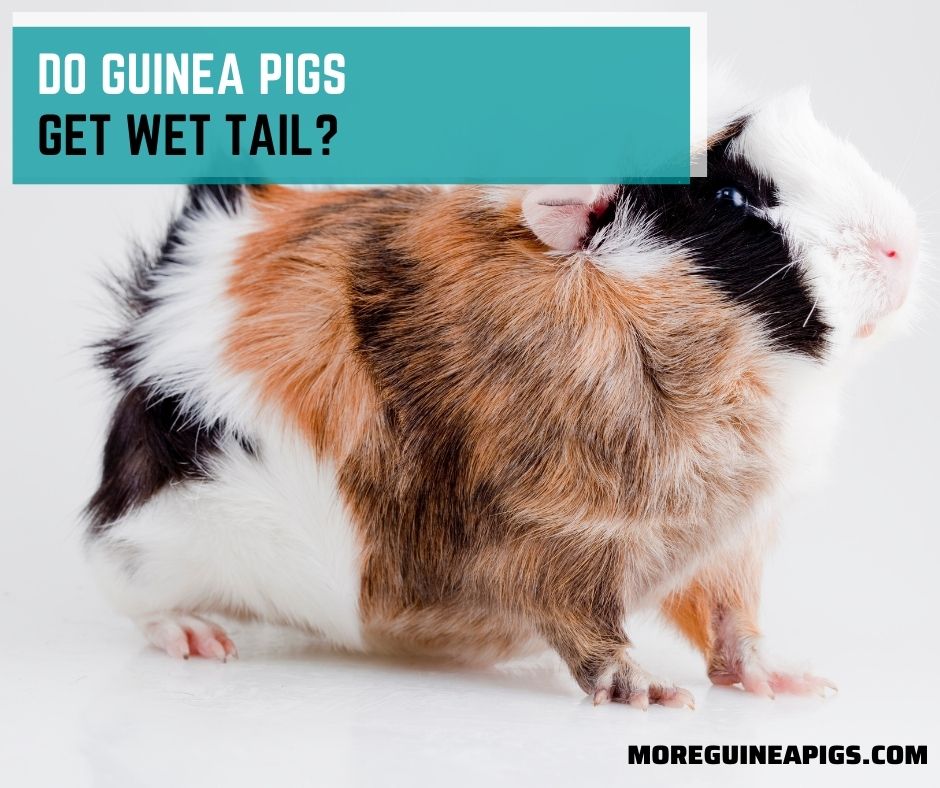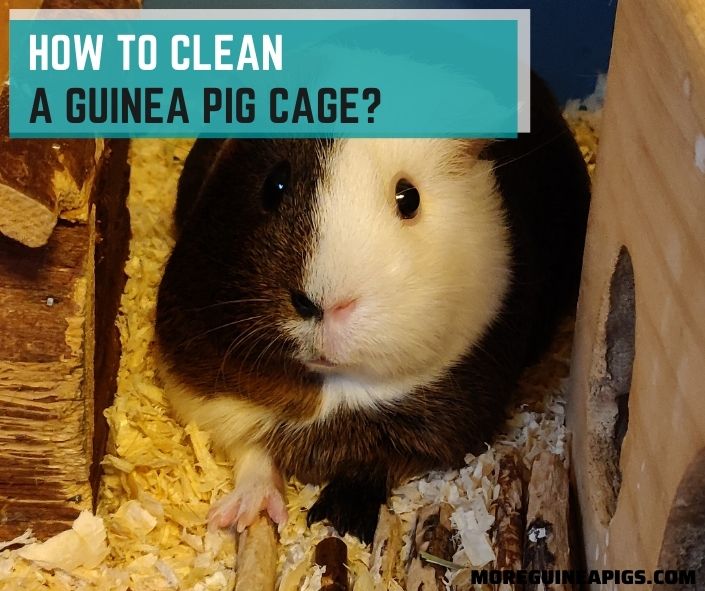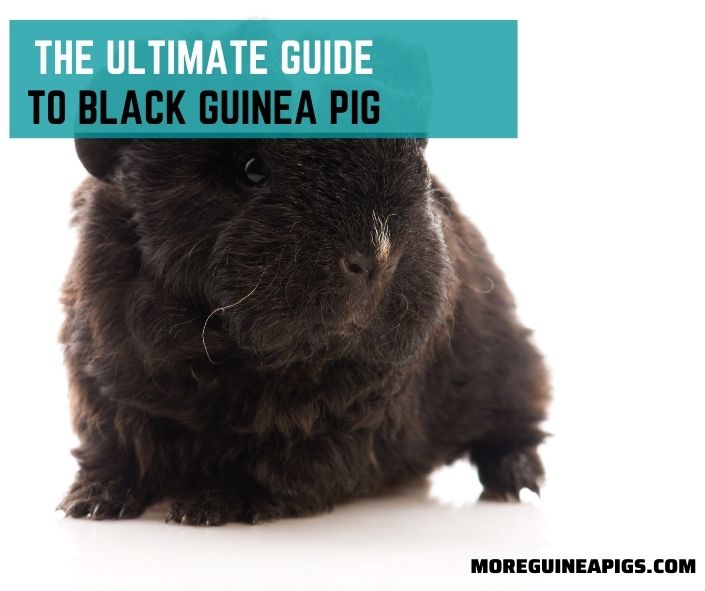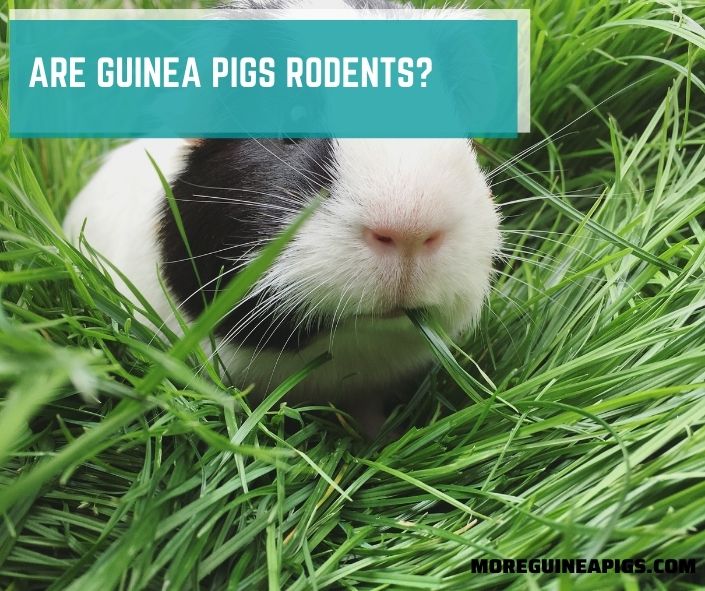Do Guinea Pigs Get Wet Tail?
Becoming a guinea pig owner can be quite confusing as there are several things that you will need to consider.
One of the things to consider as a new guinea pig owner is the health of your cavies. Since guinea pigs are pocket-sized rodents, you may also wonder if they can get wet tails.
Wet tail, also called proliferative ileitis, is a disease that commonly affects hamsters and is caused by stress. Even when you provide adequate treatment, hamsters can die within 48-72 hours.
In this article, we will explain everything you need to know about wet tails, from whether guinea pigs can get wet tails to how you can treat them.
Do Guinea Pigs Get Wet Tail?

Unlike hamsters, it is not common for guinea pigs to get wet tails. This is because guinea pigs suffered from a rare gene mutation that suppressed their tail development and didn’t have a tail. However, they still have a tailbone.
On the other hand, a wet tail is a sign of diarrhea, and guinea pigs can get diarrhea. Once you notice this sign, it is best to treat it immediately, as diarrhea can be fatal.
Thing That Is Called Wet Tail Could Be Guinea Pig Diarrhea
As stated before, a wet tail is an indicator that your guinea pig may be suffering from diarrhea. Diarrhea is a condition where a guinea pig has a loose, soft, or watery poop.
This can occur numerous times per day, and it is usually smelly and messy.
Diarrhea is not only messy; it also indicates that your guinea pig has a serious health problem.
Signs And Symptoms of Diarrhea in Guinea Pigs
Some of the signs that indicate your guinea pig is suffering from diarrhea are stated below.
- Loss of appetite
- Abdominal pain
- Lethargy
- Loose and watery poop
- Dehydration
- Sunken eyeballs
- Soiling of the fur around the genital and anal area of guinea pig
- Foul smell
Causes of Diarrhea in Guinea Pigs
There are several things that can cause diarrhea in a guinea pig. Guinea pigs can develop diarrhea if bacterial, viral, or parasite infection. Another thing that can cause diarrhea in guinea pigs is feeding your pet an improper diet.
Stress can also cause diarrhea in guinea pigs. Furthermore, guinea pigs suffering from cancers and other diseases can also have diarrhea.
How To Treat Diarrhea in Guinea Pigs
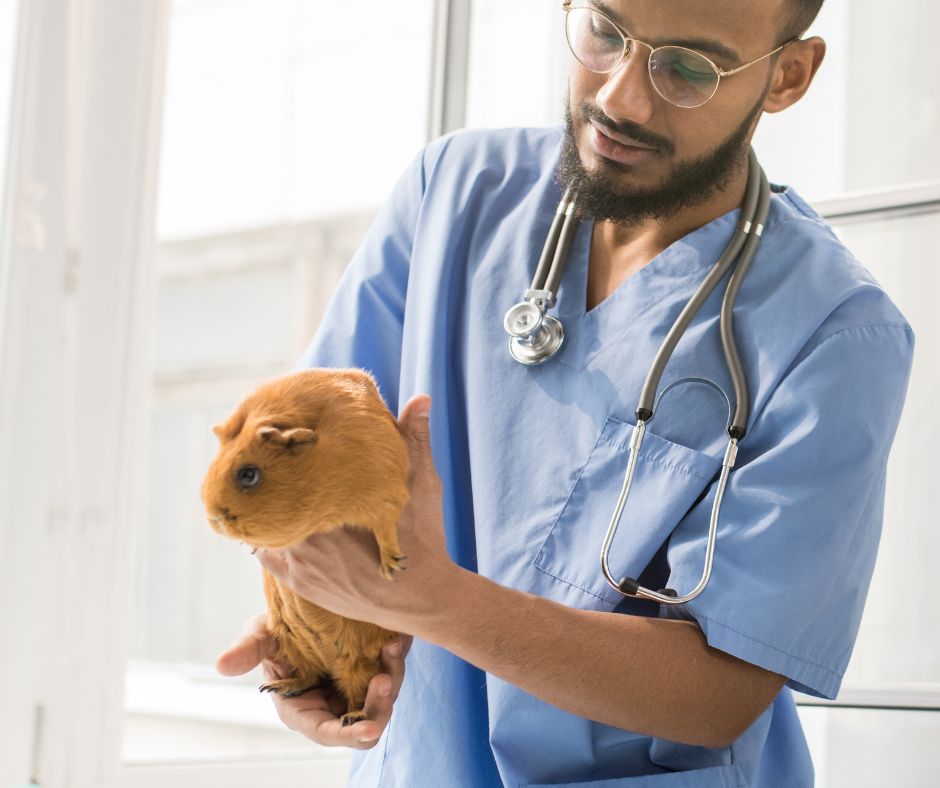
Before effectively treating diarrhea in guinea pigs, you will first need to know the cause. In case of diarrhea caused by diet, you can treat this by providing more fiber or vitamin C for your guinea pig.
You will also need to reduce anything that is stressing your guinea pig to help treat diarrhea caused by stress.
Furthermore, you may need to provide various medications if your guinea pigs suffer from parasites, infections, or disease. You may also have to administer fluid if your guinea pig is dehydrated due to diarrhea.
It is recommended that you visit a vet when you are unsure of the cause of diarrhea in your guinea pig. The vet will help do a physical examination on your guinea pig to determine the cause of diarrhea and the best way to treat it.
How Do You Prevent Diarrhea in Guinea Pigs?
One of the common reasons for diarrhea in guinea pigs is if you provide an inappropriate diet. This means you can prevent diarrhea in your guinea pig by providing them with a diet rich in fiber with leafy vegetables for maintaining a healthy gut.
Another thing is to keep your guinea pigs away from drafts and areas where there are other pets. This will help to ensure that your guinea pig is not stressed frequently.
Furthermore, you should regularly clean your guinea pig’s environment to avoid infection.
Whenever you bring a new guinea pig home, you should first quarantine it for about a week before introducing it to older pigs. This will help to prevent parasite spreads that can cause diarrhea.
Lastly, once you notice that your guinea pig is not acting normal for more than a day, you should consult with your vet immediately for diagnosis.
Timothy Pellets – 100% All Natural, High Fiber
In Conclusion
Wet tail is a common disease that occurs in hamsters and usually caused by stress. However, guinea pigs can have wet tails, but it is more of a symptom of diarrhea. We hope this article answers all your questions regarding wet tails in guinea pigs.
If you have any questions or comments about this article, you can use the comment section below.
